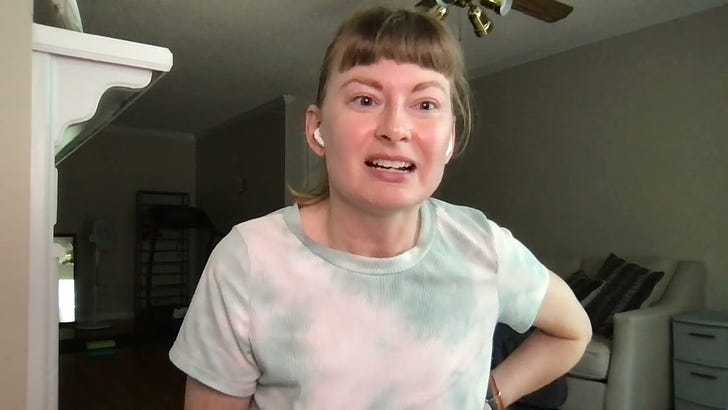Welcome to Sex and the State, a newsletter about power. I’m a writer working on decriminalizing and destigmatizing all things sex. I use evidence and stories to interrogate existing power structures to propose better ways of relating. To support my work, buy a guide, buy a subscription, follow me on OnlyFans, or just share this post!
~~~~~
If you’d rather watch me read this:
For a long time, I’ve thought a lot about native-born American men. Specifically, what’s wrong with them, and what caused it? I’m talking about a bunch of things here: Resentment. Low and declining labor force participation rates. Radicalization. Grievance politics. Violence. Populism. Loss of status. Wage stagnation. Changing gender roles. Deaths of despair. Atomization.
I’m particularly interested in the rise in female earnings relative to male and native-born men’s intense opposition to female breadwinner marriages. Basically, how do we find a place for native-born men in society when macroeconomics has displaced them from their traditional roles?
On the last Neoliberal Project live stream I recommended that people who want to better understand government threats to well-being listen to marginalized people. I wouldn’t call native-born men marginalized in comparison to other demographics. But I do think they’re suffering.
And I think for that reason, and more importantly because it’s a large and somewhat powerful demo, they’re worth listening to as well if I want to understand the situation. I’ve read studies. But I wonder how representative and empathetic they really are. So I’m interested in finding sources of info that could be academic/think tanky but are closely connected to their lived experience.
One thing that I think plays a powerful role in the situation is expectations. When I was growing up, my expectations for adulthood were pretty low compared with how life has turned out for me. As a woman in the South who didn’t come from means, I was never told that X, Y, and Z were waiting for me if I just did A, B, and C. I aspired to a white-collar job, a house, two cars, maybe some kids, and a similarly employed husband. But it never felt assured to me. I assumed I’d have to work hard for all of that.
It feels to me that native-born men were told if they went to college they’d get a white-collar job, a wife who works but earns less, a house, two cars, and some kids. Or, if they didn’t go to college, they’d have all the same things but a blue-collar job.
Furthermore, the white ones were told (and are still told) that simply being white and male would be enough to deliver those things to them if they put in a modicum of effort.
And there was a time (https://www.theatlantic.com/magazine/archive/2020/03/the-nuclear-family-was-a-mistake/605536/) when all that was mostly true. But it’s definitely not true anymore. From that lens, the grievance makes sense. I’m grateful because life’s been a lot easier and more fun than I expected it to be. They’re aggrieved because life has been a lot harder and less fun than they expected it to be. Imagine being told your role as a man, your responsibility, is to materially provide for a woman and that you’ll be able to do so if you try. And then finding out that you can try really, really hard and still fail. You’d have to conclude that either something is wrong with you, or something is wrong with the system. And when you find other native-born men having the same experience, you’d conclude that it’s systemic.
I’ve had similar thoughts. I was told my role as a woman is to marry a man who can materially provide for me and our children. I got my degree as a back-up plan. If you’re new here, I’ll let you know that I’ve thus far failed to do that. And at 36, childfree, and in a few situationships, it’s not looking good.
One key difference between me and a native-born man, resentment-wise, is that I never really bought into the idea that it’s my responsibility to do any of that. I mean I do hate it for my parents that I likely won’t be delivering any grandchildren. Thankfully, I have siblings that have and may deliver.
I’ve certainly felt external, cultural pressure to marry a man who can materially provide for me and our children. But having been raised by three feminists (only one of whom would likely claim the label) and on BUST and Bitch Magazine I always had access to the perspective that being born with a vag doesn’t necessarily saddle me with a moral or ethical responsibility to do anything.
But if I bought into the idea that my genitals determine my obligations and found I could not meet these obligations in the systems in which I operated, I’d feel resentful. And really, those are your two options. You can decide the idea that one’s genitals determine their social obligations is antiquated, unhelpful, unworkable, and therefore invalid. Or, you can decide the idea that one’s genitals determine their social obligations is correct, and the system that makes that difficult/impossible is invalid.
And I guess this is where I’m at: The idea that one’s genitals determine their social obligations is invalid and the system that sells people that idea but then makes it difficult/impossible to meet those obligations is also invalid.
So, where do we go from here? I don’t think a male breadwinner model of marriage is ideal or even realistic anymore. Taking women out of the workforce isn’t going to work. The market value of female labor is too high and too likely to grow. The benefits of female labor force participation are too high. Even if we could do it, it would cost society too much to be worth the benefits.
There’s also the issue of representation. Sure, there’s a meme around women who opt out of male breadwinner marriage and children as being shallow, unfulfilled, selfish, etc. At the same time since at least Mary Tyler Moore women had images of opt-out women as living lives that are, if not aspirational, at least acceptable to a certain subset of women.
Where is the representation of opt-out men leading acceptable lives? There’s the James Bond model, which works if you have lots of money and access to casual sex. But for the men with average (or below) money and looks, the cultural narrative is that it’s pathetic after a certain age to do anything other than the male breadwinner model. That sucks.
Another open question: Will women be on board with a non male breadwinner model? I left my non-breadwinner husband. It’s only been since I’ve been at my current level of economic security that I’ve even contemplated marrying someone who earns less than me.
So what then?
I can’t imagine a workable solution that doesn’t involve people en masse abandoning the idea that one’s genitals determine their social obligations. Or, at the very least, coming up with a new set of social obligations that men and women can actually meet.
Is that possible? Is it likely? What are the costs? I guess that’s what I want to learn more about.














Share this post